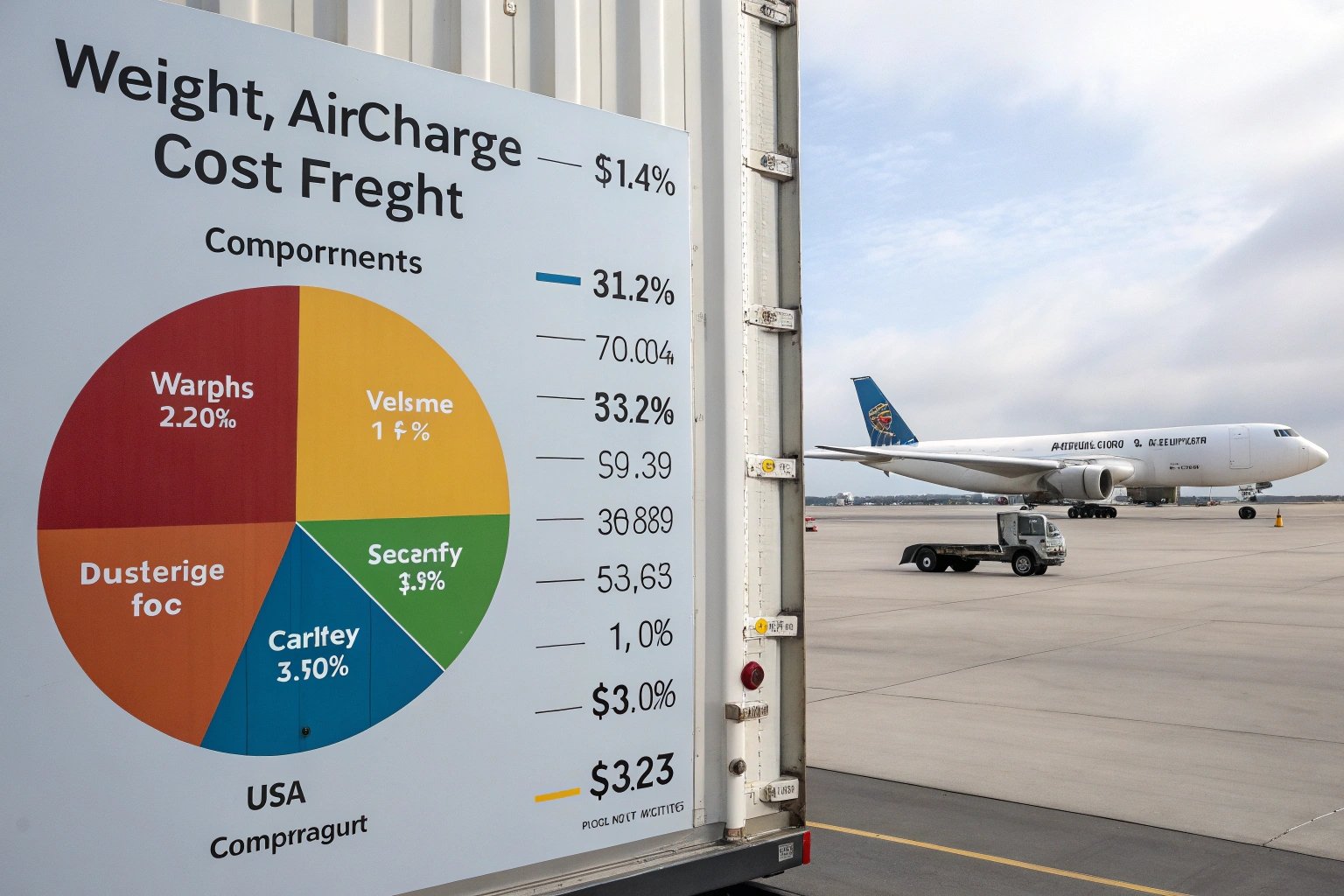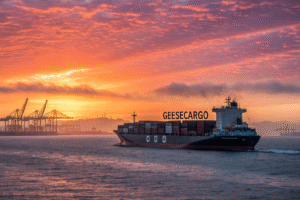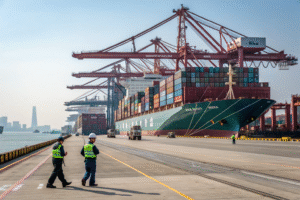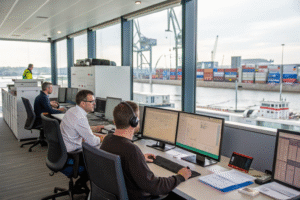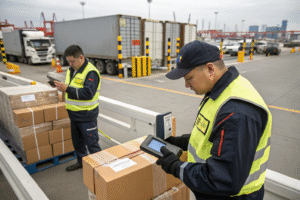Shipping goods by air sounds fast—but when the invoice arrives, the freight charges can be a surprise.
Air freight costs are determined by factors like weight, volume, distance, fuel charges, and carrier surcharges. The calculation of “chargeable weight”—either actual or volumetric—directly affects your total shipping bill.
I’ve worked with hundreds of clients moving goods from China to North America. Understanding how these air freight charges are calculated helped many of them avoid hidden fees—and negotiate better rates. Let’s break it all down.
What factors influence air freight pricing?
Air cargo is priced differently from ocean freight—speed comes at a premium.
Air freight pricing is based on the cargo’s chargeable weight, destination, service level, fuel surcharges, and airport handling fees. Market demand, peak seasons, and carrier capacity also influence final pricing.
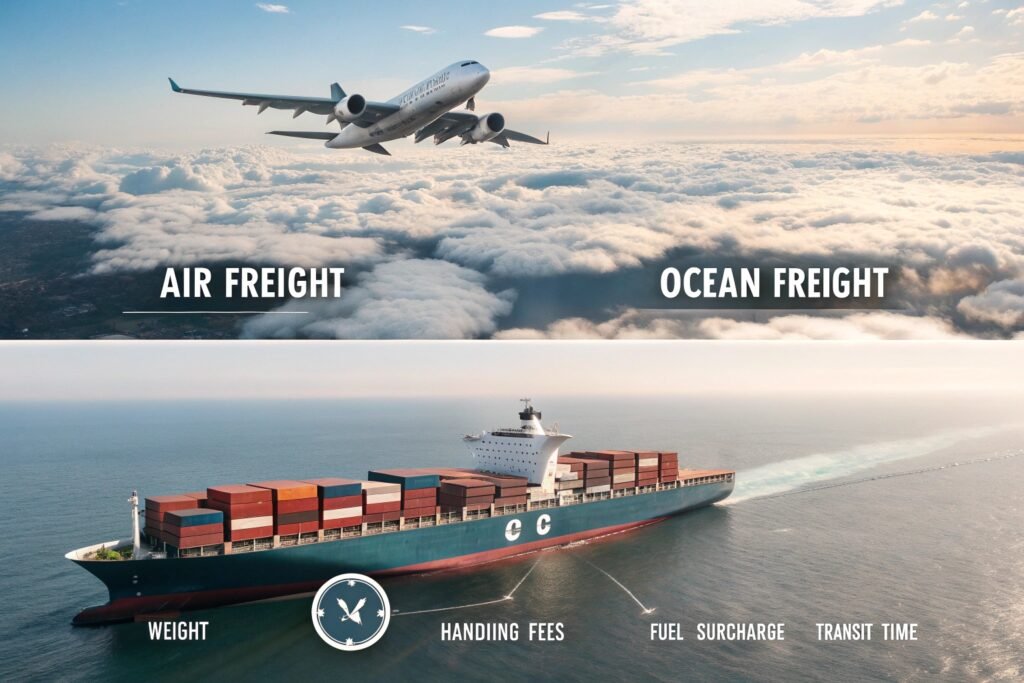
How does each factor contribute to the final cost?
Here’s a simplified table showing how different variables affect pricing:
| Factor | Influence on Freight Cost |
|---|---|
| Chargeable Weight | Heavier or bulkier cargo costs more |
| Origin & Destination | Longer distances and less-frequent routes are pricier |
| Service Type (Standard/Express) | Faster services cost more |
| Fuel Surcharges | Adjusted regularly depending on fuel market |
| Seasonal Demand | Q4 (Oct–Dec) and before holidays are peak pricing |
| Airport Fees & Handling | Varies by airport and local charges |
When do these factors hit hardest?
During Golden Week in China or Black Friday season in the U.S., we often see air freight prices double or even triple. Last year, one of our clients shipping electronics saw rates jump from $4/kg to $9/kg because of limited space and fuel increases.
The key? Book early and choose the right service level.
How is chargeable weight calculated for air cargo?
Chargeable weight is the most misunderstood element in air freight invoices.
Air freight carriers charge based on whichever is greater—actual weight (in kg) or volumetric (dimensional) weight. This ensures carriers get paid for bulky items that take up space, even if they’re light.
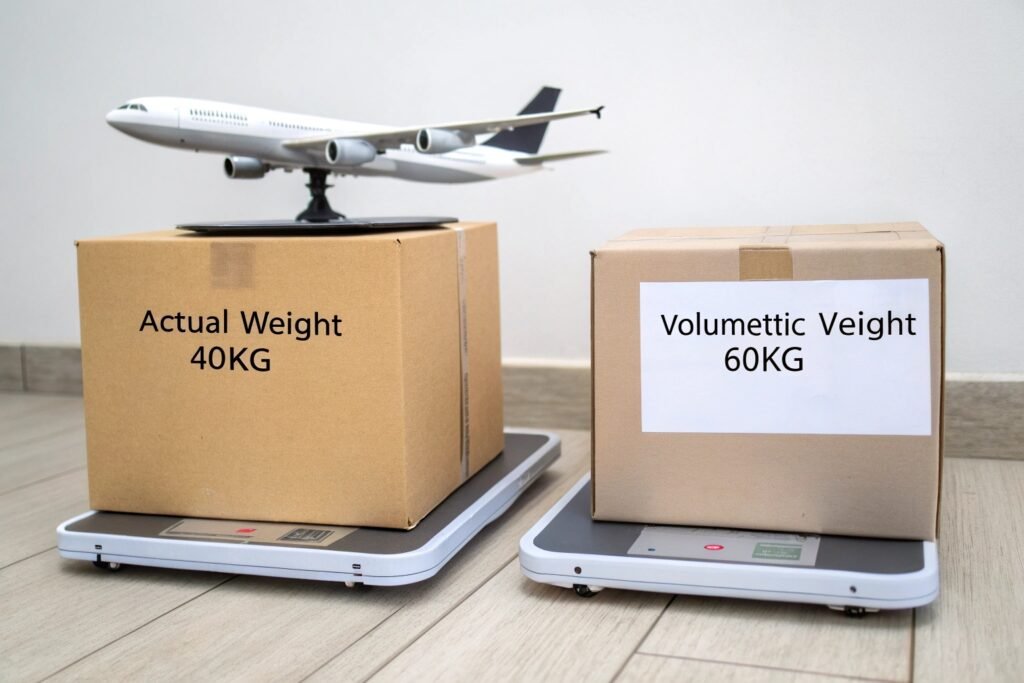
What is the volumetric weight formula?
The standard IATA formula for calculating volumetric weight is:
For example:
A box measuring 80 × 60 × 50 cm weighs 35 kg.
- Volumetric weight = (80×60×50) ÷ 6000 = 40 kg
- Chargeable weight = 40 kg (since it’s greater than the actual 35 kg)
Why does this matter?
One of our customers shipped plush toys—lightweight but in large boxes. They assumed they were paying based on weight (5 kg per box), but their cost was calculated based on 12 kg per box due to size.
| Metric | Example Value | Affects Cost? |
|---|---|---|
| Actual Weight | 35 kg | Yes |
| Volumetric Weight | 40 kg | Yes |
| Chargeable Weight | 40 kg | Definitely |
Reducing packaging size—even just by a few centimeters—can save a lot. At GeeseCargo, we always help optimize cargo dimensions before booking air space.
Do fuel surcharges and fees affect total cost?
Many clients assume the quoted rate is the full story—but fees add up.
Fuel surcharges, security fees, terminal handling charges (THC), and customs clearance costs can significantly increase your final invoice. These are often separated from the basic freight rate.
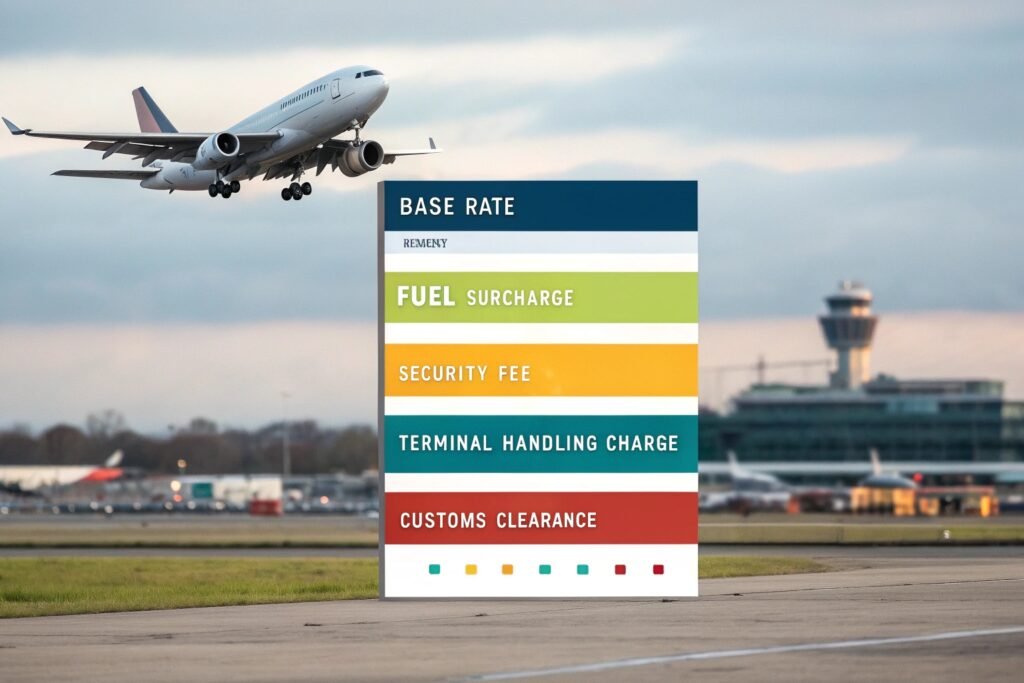
What are common surcharges in air freight?
| Surcharge Type | Description |
|---|---|
| Fuel Surcharge | Adjusted based on global fuel prices |
| Security Fee | Covers airport screening and safety checks |
| War Risk Surcharge | Applied to routes through unstable regions |
| Airport Terminal Charges | Handling fees at origin and destination |
| Documentation Fees | Charged for air waybill, manifest prep, etc. |
How do these affect budget planning?
A client once received a $2.50/kg quote but paid $3.60/kg after all surcharges were added. Their 500 kg shipment resulted in an extra $550 they hadn’t planned for.
To prevent surprises, we always quote all-in rates at GeeseCargo that include surcharges—no hidden extras.
Can forwarders negotiate better air freight rates?
If you’re shipping frequently, you shouldn’t settle for retail prices.
Freight forwarders with strong airline relationships can negotiate bulk air freight discounts, offer better routing options, and consolidate cargo from multiple shippers to lower per-kilo rates.

How do we negotiate at GeeseCargo?
- Use our long-term contracts with major airlines (e.g., China Airlines, Emirates, UPS)
- Fill full pallets and containers with multiple clients’ cargo
- Ship during off-peak days to access lower rate brackets
- Monitor market trends and space availability weekly
We once helped a client reduce their air rate from $6.80/kg to $4.80/kg by waiting 48 hours and bundling their shipment with another buyer’s goods headed to the same airport.
Can I negotiate directly with carriers?
Rarely—airlines prioritize space for large-volume partners. That’s where we come in.
| Negotiation Factor | How Forwarders Help |
|---|---|
| Volume Bundling | Combine client shipments for bulk rate |
| Weekly Space Allocation | Use secured weekly airline slots |
| Rate Lock Agreements | Shield against sudden price hikes |
| Faster Route Suggestions | Recommend quicker and cheaper paths |
Let your forwarder be your price shield and strategic planner. At GeeseCargo, we treat every air shipment as a budget opportunity.
Conclusion
Air freight costs are more than just weight and distance. Understanding how chargeable weight, fees, and market demand affect pricing helps you ship smarter. And with a reliable partner like GeeseCargo, you gain better rates and clearer invoices—every single time.
